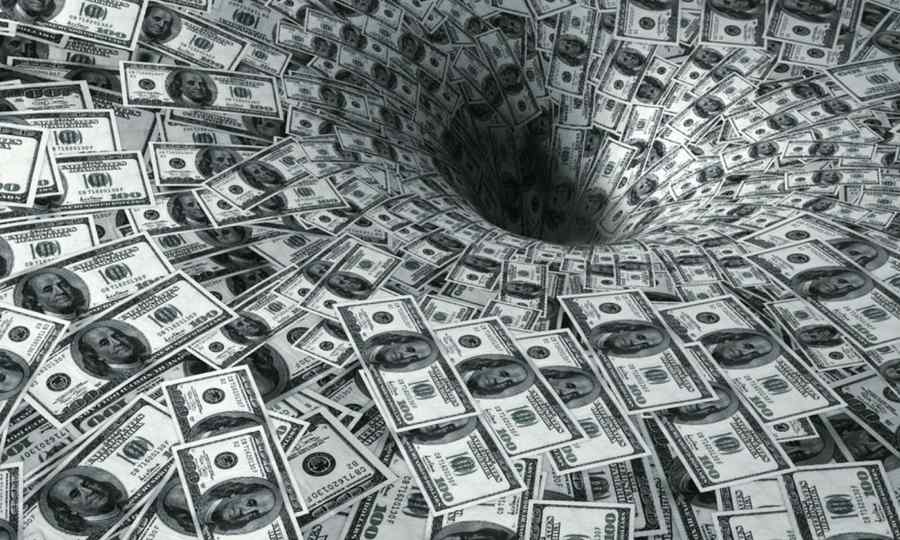The controlled destruction of the global order

The international press reacted to the historical growth of the customs tariffs imposed by the US through a wave of apocalyptic articles, based on the same model that wrongly estimated both the consequences of leaving Britain from the EU and the consequences of western sanctions on Russia. It is a model based on fear, underlining the disastrous consequences on the « bad boys » in the aforementioned contexts – either America to Trump, Putin or British Russia.
Speaking after announcing American customs tariffs, economist Yanis Varoufakis says that « we must avoid the fear that is induced by the liberal system, which now resembles some panic chickens, unable to understand that this man has a plan. Personal, I do not appreciate his plan, but those who say that the plan will not be articulated. I am talking about Democrats in the US, about Macron’s France.
What Trump does now isn’t something new. In 1971, Richard Nixon shocked the world in a way that Donald Trump can’t even dream of doing it now. It was much more devastating than what the Trump administration does through the new customs rates. In 1944, at Bretton Woods, the US created the first global currency, laid the foundation of the golden age of capitalism, and Nixon threw everything in the air. Paul Volker, who was part of Nixon’s team, later said that, in certain situations, following the national interest, it is good to control the global order. The irony is that, now, in 2025, those who accuse the hardest Trump administration are the ones who defend an economic world created by a « controlled destruction » in the time of Nixon.
Varoufakis says Trump’s team believes that a new « Nixon shock » is needed to prevent the US economy from melting into a much larger global scheme. This policy will have a negative impact on Americans with low incomes, who will have to pay higher prices for imported products. However, if Trunmp’s purpose is to bring higher revenues to the budget and create jobs in America, then this policy has high chances of success, writes Wolfgang Munchau. The Republican party risks losing the elections in the middle of the mandate, in 2026, because it takes time to manifest the positive effects of Trump’s policy, but the US will gain medium -term benefits.
The reaction of the EU and the great European economies was that of the powerless tire. The president of Ursula von der Leyen continues to declare that the EU will prepare a pack of harsh measures as a response at American rates. Germany, still devoid of a government, reacts similarly, as well as France led by a minority government, of the storage of the last elections.
As the EU has a commercial surplus of $ 2.4 trillion with US, talking about a response at Trump’s rates is a mistake, because US commercial dependence is much higher for Europeans than vice versa. The mature reaction of Europe should start from the recognition that Germany, the EU engine, was a creation of the Bretton Woods system, a country raised by the US and scheduled to be surplus (like Japan), and now that system no longer works. From the European parliamentary debates, the public speech is lacking in the idea of abandoning the German mercantilist policy and beyond. European leaders discuss how to become independent of American weapons manufacturers, but do not discuss how Germany and EU should become independent of the American commercial deficit, which Trump declared war.
However, it all depends on how the rest of the world will react to the rates announced by Donald Trump, how states will decide to negotiate with the US. The Trump administration prefers to negotiate on the « spita spit » model – if the US gets everything they follow from a certain state, it is good; If the US will not get what they are following, the wheel will work with a minus spoke.
China, Japan and South Korea have pointed out that they can choose another approach. On March 30, a few days before the official announcement of American customs tariffs, the ministers of the economy in the three countries had The first meeting of the last five years And they committed themselves to strengthen free exchange relationships in order to respond to American rates. Two major Asian allies of the United States sketched a China.
What will the European Union do? « We will also pay attention to the indirect effects of these rates, because we cannot absorb global overcapacity and we will not accept dumping on the European market, » said Ursula von der Leyen. In other words, Von Der Leyen warned with a new commercial battle, this time with China, if Beijing will decide to channel to Europe that now go to the US. « Therefore, instead of coordinating Riposte to the US with East Asian countries, such as China, South Korea, Japan, Taiwan and Vietnam, the EU will probably take some separate commercial struggles, allowing America to embrace the actors against each other, » writes Munchau.
Instead of cooperating to find an alternative to American financial architecture, the EU seems to prefer commercial wars with the most important commercial partners – USA and China. Europe is placed between the hammer and the nicovala, and the way out will depend on the answer to a dilemma: to lose a commercial battle to win the great commercial war or vice versa?







/s3/static.nrc.nl/images/gn4/data133306995-b21914.jpg)